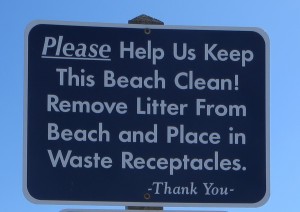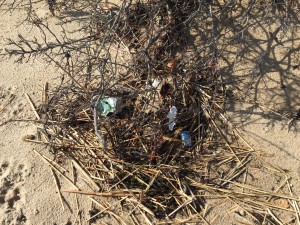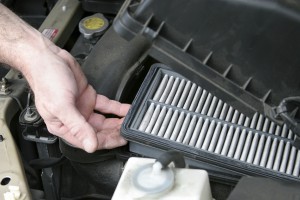 Earth Day, which we celebrate in April, was a concept born out of the counterculture 1960s, and is celebrated worldwide today. This day is devoted to the promotion and protection of the environment was conceived at a time when Americans were driving gas guzzling V8s and many businesses didn’t think twice about pollution. The designation of the day nationally was brought forward by a U.S. Senator from Wisconsin after witnessing a massive oil spill in California. Through that environmental disaster, an idea to help raise awareness about environmental issues was created and the following April, Earth Day was born.
Earth Day, which we celebrate in April, was a concept born out of the counterculture 1960s, and is celebrated worldwide today. This day is devoted to the promotion and protection of the environment was conceived at a time when Americans were driving gas guzzling V8s and many businesses didn’t think twice about pollution. The designation of the day nationally was brought forward by a U.S. Senator from Wisconsin after witnessing a massive oil spill in California. Through that environmental disaster, an idea to help raise awareness about environmental issues was created and the following April, Earth Day was born.
Now, decades later, there has been much progress made. We’ve seen energy efficient appliances, hybrid vehicles and solar panels among many other technological advances over the last four decades.
But let’s not forget what today represents. Through the power of the Internet, we all have access to see the environmental issues the world is facing. We can watch the videos, look at the pictures, read the stories.
As we celebrate how far we’ve come, we should continue to remember how far we still need to go. Cape Codders, and all Americans, should review how they contribute to the growing environmental problems the world is facing.
It all comes down to each and every one of us. If we all do our part, we will make a difference.
We’ve compiled a list of seven things that you can do as a starting point.
1. Stop Junk Mail
It is a good idea to remove your name from mailing lists, as on average, an American receives 40 pounds of junk mail annually. Looking at the Cape’s population of roughly 200,000, not including the influx of visitors in the summer, upwards of 6 million pounds of junk mail per year is received by Cape residents. By stopping junk mail, a large amount of waste could be avoided.
2. Shop Local for Food / Grow Local
Did you know that the food you put on your plate every day traveled an average of 2,000 miles to get there? By shopping local, you not only are helping to stimulate small businesses, but you are also helping to cut down on travel and energy consumption of the products you are purchasing. An added benefit is that you know where and, in many cases, who the food comes from.
Regardless of where you live, everyone can start a garden. Not only is it a great hobby to get into, but you can also supply your family with freshly grown food right at your doorstep. Be sure to buy organic pesticides and herbicides, as too often certain ingredients (glyphosate) enter our waterways. Herbicides and pesticides that run into waterways on the Cape pollute the estuaries with nitrogen and harm fish and shellfish, which in turn could have a negative impact on some of the food we eat and water we drink.
3. Reuse Items
 Everyday many people on the Cape go out and buy a cup of coffee at their favorite coffee shop or purchase bottled water, only to throw these containers away after their use. One very easy method to cut down on these disposable containers is to use—and carry with you—a reusable bottle or cup. Doing this cuts out plastics, like bottled water bottles, and in the end produces no trash whatsoever. Having a reusable bottle also ensures that items like styrofoam cups aren’t ending up in the waste stream or polluting the environment.
Everyday many people on the Cape go out and buy a cup of coffee at their favorite coffee shop or purchase bottled water, only to throw these containers away after their use. One very easy method to cut down on these disposable containers is to use—and carry with you—a reusable bottle or cup. Doing this cuts out plastics, like bottled water bottles, and in the end produces no trash whatsoever. Having a reusable bottle also ensures that items like styrofoam cups aren’t ending up in the waste stream or polluting the environment.
An extremely popular alternative to going out and buying a cup of coffee is the Keurig machine, which uses a product called K-Cups. Unfortunately, these K-Cups have started to affect the environment in negative ways, because of how many are produced and used, as well as how they are constructed.
When you go to your favorite grocer, be sure to bring a reusable shopping bag. This is a simple, yet effective method that can cut down on plastic bag usage and make for an easier shopping experience.
Whenever possible avoid plastics altogether so we can keep these harmful objects out of our waterways and off of the Cape’s beaches and byways. Items such as the plastic six-pack rings should be cut when disposed of to help prevent animals becoming caught in the plastic.
4. Go Digital
With almost everyone having access to some form of a computer these days, it is very easy to buy digital products or use digital assets to cut down on waste. By buying digital products, you can cut down on trash and don’t have to leave your home, which means no transportation or shipping costs. You can also pay your bills online and stop receiving paper bank statements, thus reducing waste.
In general, the more you maintain your accounts online, the smaller your footprint will be. Less paper, less gas and no postage.
5. Save Money, Vehicle Trips
 By taking care of your vehicle, you can cut down on the money it would cost you to operate it and help the environment at the same time. Making sure your tires are properly inflated can help bring down gas costs and will also help you get more mileage out of your car. Checking and replacing your engine’s air filter can improve the lifespan of your vehicle and assist the environment in a positive way. Also, it is important to remove any unnecessary baggage from your vehicle, which will improve your gas mileage and in turn save you money. When possible, consider taking public transit or carpooling, to reduce the use of your own personal vehicle and save gas.
By taking care of your vehicle, you can cut down on the money it would cost you to operate it and help the environment at the same time. Making sure your tires are properly inflated can help bring down gas costs and will also help you get more mileage out of your car. Checking and replacing your engine’s air filter can improve the lifespan of your vehicle and assist the environment in a positive way. Also, it is important to remove any unnecessary baggage from your vehicle, which will improve your gas mileage and in turn save you money. When possible, consider taking public transit or carpooling, to reduce the use of your own personal vehicle and save gas.
6. Use Less
Electricity
The amount of electricity used year-round in Cape homes is substantial. There are many easy ways to cut down on electricity usage. Actions such as removing your cell phone from charging when it reaches a full charge or in general, unplugging all of your electronics before bed can greatly reduce the amount of electricity used.
Other household activities, like washing and drying clothes can raise the amount of electricity used. Consider hang drying your clothing, which costs nothing and washing fewer loads of laundry.
Lighting in households is another source of electricity usage that is sometimes neglected. Turning off lights when not using them and changing your existing light bulbs to LED bulbs are some efficient ways to help lower electricity usage.
Water
Do you tend to take long hot showers? It is best to take shorter lukewarm showers to help keep the amount of water you use at a minimum. When you brush your teeth, try to remember to turn the water off while brushing.
Oil
When in your home, try to keep a moderate temperature throughout the house and when you leave turn down the heat when not at home, weather permitting.
7. Plant a Tree
The average American’s carbon footprint is 20 tons, which means on Cape Cod alone, year round residents produce roughly 4 million tons of Co2, and planting a tree can help offset that.
Planting trees are good for the air you breathe, the land you live on and also may increase the value of your home.
If you’re looking to plant a tree for free, most trees, if you look closely enough, have sprouts within 25 feet of the tree. Simply take that sprout and replant it.























